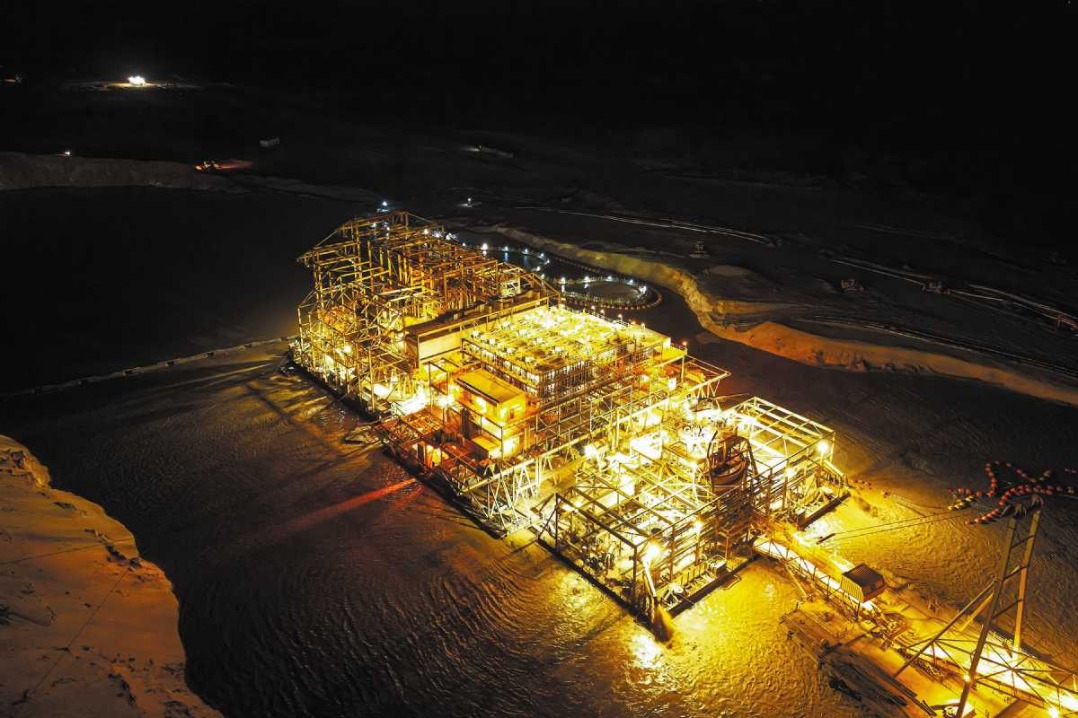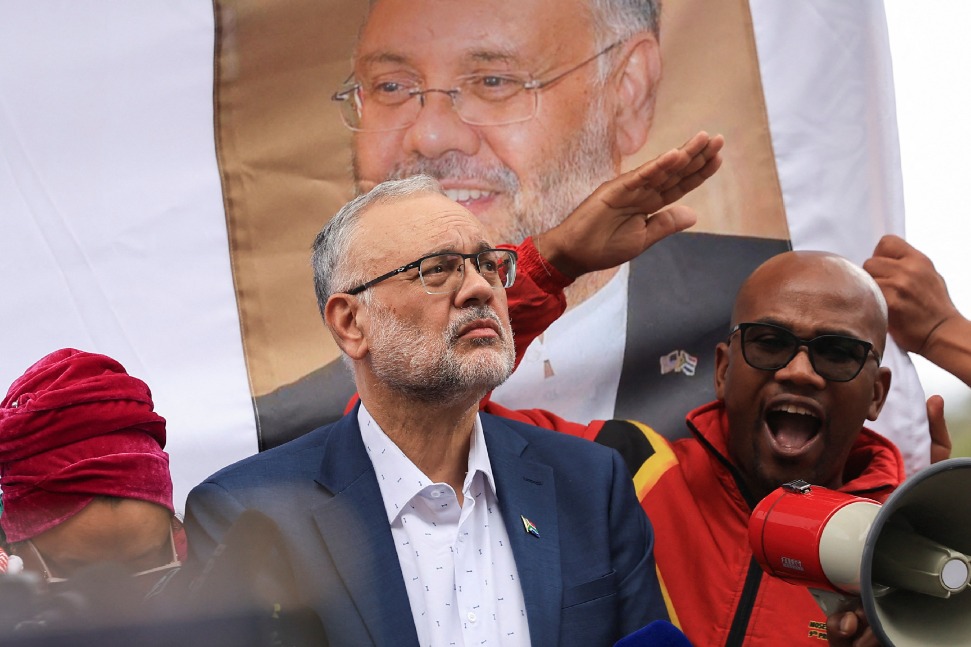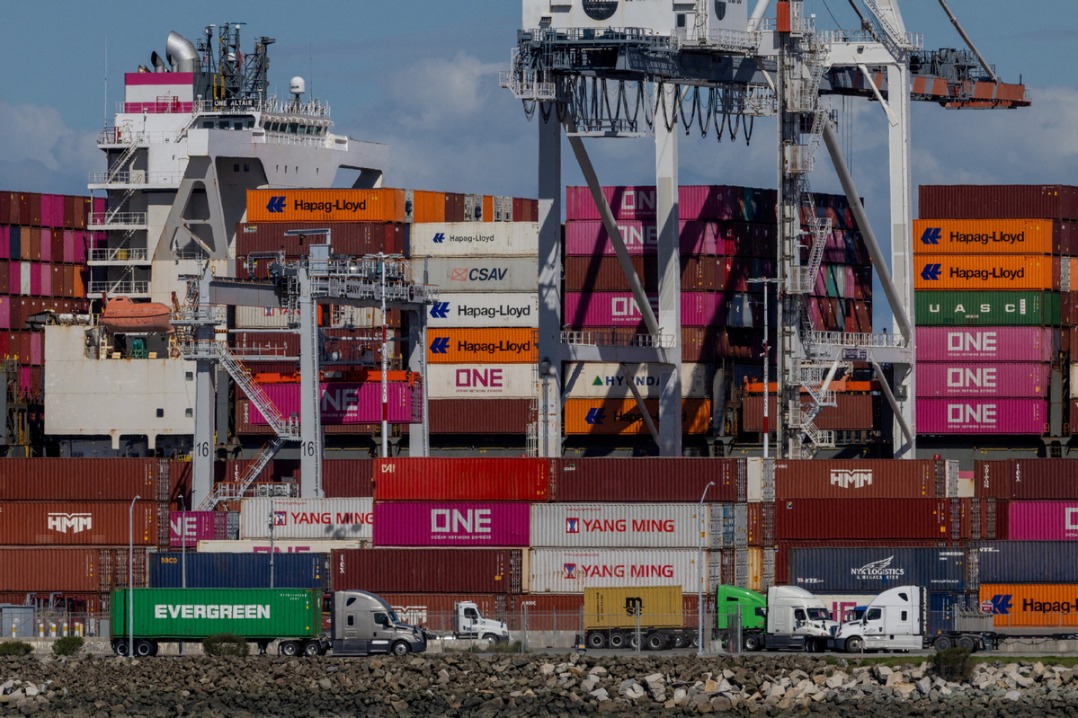Future of Africa rests on financial cooperation


Sino-African financial cooperation is set to be a game changer for Africa. The cooperation is defined by inventive financial strategies and a focus on infrastructure development, functioning as more than just economic dealings. It represents a strategic collaboration aimed at long-lasting growth and sustainability. The Chinese proverb, "Give a man a fish, and you feed him for a day. Teach a man to fish, and you feed him for a lifetime", perfectly encapsulates the spirit of Sino-African financial cooperation.
A prominent example of this cooperation is the construction of the Standard Gauge Railway in Kenya. The China-led initiative has significantly enhanced transportation infrastructure while generating thousands of jobs and boosting economic activity along its route. The railway highlights the success of Chinese financial approaches, which view infrastructure as key to stimulating comprehensive economic progress. In contrast to Western programs that focus on immediate assistance, Sino-African financial cooperation prioritizes investments that lay the groundwork for future success.
Another noteworthy project is the Addis Ababa-Djibouti Railway that links Ethiopia and Djibouti. This railway has transformed trade and logistics in the area by cutting travel time and costs, thus easing the flow of goods and people. The project reflects the sustainable, long-term ambition of Sino-African financial cooperation, which is to forge interconnected economic regions that benefit several nations. As former Ethiopian Prime Minister Hailemariam Desalegn stated, "This railway is a symbol of our commitment to regional integration and economic cooperation."
Sino-African financial cooperation focuses significantly on developing energy infrastructure, which is vital for regional economic growth. For example, in Zambia, China has invested in and built several hydroelectric power plants, such as the Kariba South Extension Project and the Kafue Gorge Lower Hydropower Station. These initiatives have greatly boosted the country's electricity generation capacity, benefiting both industries and households while decreasing dependence on fossil fuels.
The sustainable aspect of these projects aligns with global environmental objectives, positioning Sino-African financial cooperation as a more responsible and progressive approach compared to many Western programs.
The Belt and Road Initiative serves as another key element of financial cooperation, aiming to establish a network of trade routes and infrastructure projects linking Asia, Africa and Europe. In Africa, the BRI has facilitated the creation of various ports, roads and industrial parks. A notable example is the Lamu Port-South Sudan-Ethiopia Transport Corridor, which is intended to improve regional connectivity and trade. The BRI's holistic strategy, which encompasses multiple sectors and countries, distinguishes it from Western initiatives that frequently function in isolation.
Additionally, Sino-African financial cooperation prioritizes capacity building and skill transfer. In Nigeria, the Chinese government has set up several vocational training centers to equip locals with the necessary skills to operate and maintain infrastructure projects. This strategy ensures that the advantages of these projects extend beyond immediate gains and are sustained over time. As Nigerian President Muhammadu Buhari remarked, "The skills and knowledge transferred through these programs will empower our people and drive our economy forward."
The effectiveness of Sino-African financial cooperation can be clearly seen in its capacity to adapt to local needs and conditions. Unlike Western programs that often apply one-size-fits-all solutions, Chinese initiatives are customized to meet unique challenges and opportunities of each country. For instance, in Angola, China has made significant investments in agricultural development, modernizing farming practices and boosting food production.
This localized strategy not only addresses immediate economic demands but also enhances food security and supports rural development. Sino-African financial cooperation is built on the fundamental principle of sustainability, with a focus on projects that positively impact the environment. In South Africa, for example, China has backed the development of renewable energy projects, such as solar and wind farms. These efforts not only help lower carbon emissions but also generate new economic opportunities in the green sector. The sustainable focus of these projects aligns with global initiatives to tackle climate change and foster green growth.
Moreover, the transparency and accountability of Sino-African financial cooperation are on the rise, with an increasing focus on good governance and anti-corruption measures. In Ghana, for instance, China has collaborated closely with local authorities to ensure that infrastructure projects are managed transparently and that funds are utilized effectively. This dedication to transparency fosters trust and guarantees that the benefits of these projects are equitably distributed among the population.
Egypt, with its strategic location and expanding economy, has become a key area for Sino-African financial operation. The Suez Canal Economic Zone exemplifies China's investment in Egypt, aiming to transform the region into a global logistics and manufacturing hub that can create thousands of jobs and attract international investors. It also showcases the power of collaboration and the potential for Sino-African financial cooperation to stimulate economic growth and prosperity in Africa.
Finally, Sino-African financial cooperation stands out due to its long-term vision and strategic approach. In contrast to many Western programs that tend to prioritize immediate assistance and short-term benefits, Chinese initiatives aim to create a lasting impact.
By focusing on investments in infrastructure, energy and human capital, Sino-African financial cooperation is laying a foundation for a more prosperous and sustainable future in Africa. As the Chinese saying goes, "A journey of a thousand miles begins with a single step." The journey of Sino-African financial cooperation in Africa is just starting, with a great potential for transformative change.
The author is director and owner of Asia Center for Studies and Translation based in Cairo, Egypt.
































